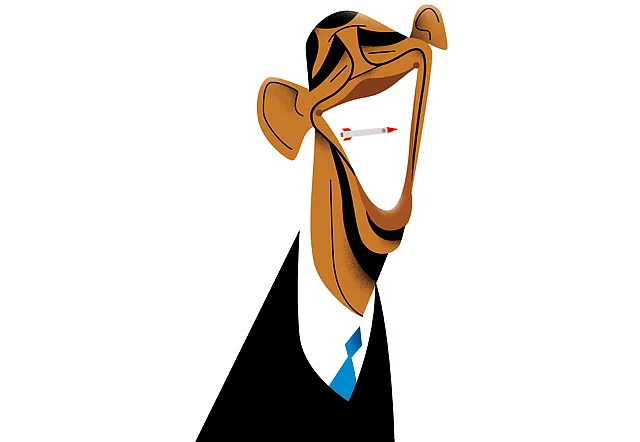Last week, US President Barack Obama unveiled a new American nuclear doctrine. Known as the Nuclear Posture Review (NPR), the Obama doctrine identifies the security threat to the United States as coming no longer from hostile nuclear-armed states but from terrorist organisations seeking to acquire nuclear weapons and from the proliferation of nuclear weapons.
Obama described the NPR and the new Strategic Arms Reduction Treaty (Start) he signed with Russian President Dmitry Medvedev as being part of his effort to pursue "a comprehensive agenda to prevent the spread of nuclear weapons".
To lead by example and win support for his drive to prevent the proliferation of nuclear weapons Obama departed from previous US practices and included in his NPR unprecedented commitments including renouncing nuclear testing and renouncing the development of new nuclear warheads: "The United States will not conduct nuclear testing and will seek ratification of the Comprehensive Test Ban Treaty," Obama said. "The United States will not develop new nuclear warheads or pursue new military missions or new capabilities for nuclear weapons."
The Obama doctrine states that the "fundamental role" of nuclear weapons is to deter nuclear attacks against the US and its allies. Significantly, it renounces the use of nuclear weapons against non-nuclear states that are members of and in compliance with the Nuclear Non-Proliferation Treaty (NPT), even if they attack the US with unconventional weapons.
This leaves out Iran, which is being accused of developing nuclear weapons in violation of its commitment under the NPT, and North Korea, which developed nuclear weapons and has withdrawn from the NPT.
In fact the Obama nuclear doctrine is intended as part of a global approach in dealing with Iran and North Korea. It puts them on notice that Washington may use military means to put an end to their nuclear infrastructures.
US Secretary of Defence Robert Gates explained Washington's warning to Iran and North Korea: "We essentially carve out states like Iran and North Korea, that are not in compliance with the Nuclear Non-Proliferation Treaty, and basically all options are on the table…".
Obama's desire to rid the world of nuclear weapons is admirable. But since the beginning of the atomic age in 1945, the deadly conflicts that caused millions of deaths around the world were fought with conventional weapons that are becoming increasingly lethal and have proven difficult to control. It is important to recall here that the five permanent members of the UN Security Council are the biggest arms traders in the world.
Nuclear weapons, on the other hand, have provided stability among nuclear-armed nations. The logic of nuclear deterrence is compelling. That is because a country that uses nuclear weapons against another nuclear-armed country is sure to bring upon itself such devastating response that war no longer makes any strategic sense. This certainty of a mutually assured destruction (MAD) kept the peace between the two main rivals of the Cold War: the US and the Soviet Union.
Obama's nuclear doctrine is philosophically progressive, but practically problematic. The new doctrine recognises that the threat to US and global security does not come from confrontation between two nuclear-armed nations, but from terrorist organisations and from the spread of nuclear weapons.
Sound assessment
The identification of terrorist organisations seeking to acquire nuclear weapons as a global security threat is sound. But does a greater number of nuclear-armed nations represent a threat to the US and global security?
If the doctrine of deterrence kept the peace among the nuclear-armed great powers, why can it not keep the peace among other nuclear-armed countries, such as India and Pakistan for instance? If Iran were to develop nuclear weapons why would it behave in any way other than in its self-interest which does not include striking Israel and bringing upon itself total devastation from an Israeli nuclear strike? Iranian leaders may be rhetorically flamboyant, but they are not insane.Obama's initiatives — the nuclear summit in Washington, the new NPR and the Start agreement with Russia — should strengthen his position at the NPT conference to be held next month at the UN.
In an ideal world the NPT would have rid the world of nuclear weapons and the trade in conventional weapons would have been strictly controlled.
But the NPT suffers from lack of credibility and double standards. The treaty was based on a simple bargain: Non-nuclear countries agreed not to develop or acquire nuclear weapons; the nuclear powers undertook to negotiate in good faith with a view to achieving disarmament.
Forty years later, it is fair to say that the nuclear-armed powers have failed to live up to their commitment. Further, the application of double standards has weakened the moral authority of the treaty. Israel, Pakistan and India have refused to sign the treaty and have developed nuclear weapons; yet they are not being threatened by Washington.
In a recent article in the British newspaper The Independent, Iranian Foreign Minister Manouchehr Mottaki identified these problems: "Rather than stopping the spread of nuclear weapons," he wrote, " the failure of certain governments to comply with key treaty articles has instead generated some 35,000 new nuclear warheads…"
He warned that the unconditional backing of some nuclear-armed states for Israel's development of nuclear weapons and its refusal to join the NPT "poses a serious threat to the security of the Middle East and beyond".
In fairness to Obama, his administration called on Israel to sign the NPT; something which the New York Times described as "unthinkable" less than two years ago.
Adel Safty is distinguished professor adjunct at the Siberian Academy of Public Administration in Russia. His new book, Might Over Right, is endorsed by Noam Chomsky.
Sign up for the Daily Briefing
Get the latest news and updates straight to your inbox
Network Links
GN StoreDownload our app
© Al Nisr Publishing LLC 2026. All rights reserved.
